“14 For ye, brethren, became followers of the churches of God which in Judaea are in Christ Jesus: for ye also have suffered like things of your own countrymen, even as they have of the Jews:
15 Who both killed the Lord Jesus, and their own prophets, and have persecuted us; and they please not God, and are contrary to all men:
16 Forbidding us to speak to the Gentiles that they might be saved, to fill up their sins alway: for the wrath is come upon them to the uttermost.”
— First Epistle to the Thessalonians 2:14-16 KJV
Previous Entries
It is not even a question whether Christ would have been branded as a bigot were He among us in the flesh today: the European Jewish Congress has already stated that the New Testament “need[s] to be scrutinized for antisemitic contents.” The Gospels have been lambasted by generations of antichrists as “anti-jewish slander”. Handel’s Messiah, a celebration of Jesus Christ and the destruction of the Second Temple, has been called an “anti-semitic screed”.
If I am likewise slandered by the enemies of God for speaking these truths, then I gladly accept such slings and arrows in His service.
There are some 450 verses within the New Testament that state the Judeans and Pharisees are vipers, poisonous snakes, whitewashed tombs, hard-hearted hypocrites, thieves, robbers, or the blind leading the blind. The Gospel of John states that God’s Word and God’s love are not with the Judeans; that none of the Judeans do what is written in the Torah; that they know neither Jesus nor the Father; that they reject the commandments and they reject God’s divine purpose. On multiple occasions throughout His ministry, they plot to kill the Messiah; which they eventually succeed in doing — to their everlasting shame.
The word generation, or genea in Greek, appears in 27 verses in between the four Gospels. 23 of those verses are a direct reference to the faithless, adulterous, wicked, evil, childish, sinful, perverse, and viperous generation of Pharisees and Judeans who rejected their Messiah in the flesh. A generation of religious leaders so filled with evil that Christ calls them sons of the devil (all emphasis below is mine):
44 Ye are of your father the devil, and the lusts of your father ye will do. He was a murderer from the beginning, and abode not in the truth, because there is no truth in him. When he speaketh a lie, he speaketh of his own: for he is a liar, and the father of it.
— Gospel of John 8:44 KJV
It is for these reasons — primarily of which was the murder of their Messiah — that the Second Temple was destroyed in 70 AD; as foretold by the Prophets Daniel, Zechariah, Malachi, and later, John the Baptist & Christ Himself.
As always, I prefer to inject as little of my own commentary as possible, “For the word of God is quick, and powerful, and sharper than any twoedged sword, piercing even to the dividing asunder of soul and spirit, and of the joints and marrow, and is a discerner of the thoughts and intents of the heart.” (Hebrews 4:12)
— John the Baptist Preaching in the Wilderness (Mark 1:6-7), ill. by Gustave Doré.
From the very first chapters of the New Testament, we are given a glimpse of the incipient wrath to come upon this generation:
7 But when he saw many of the Pharisees and Sadducees come to his baptism, he said unto them, O generation of vipers, who hath warned you to flee from the wrath to come?
8 Bring forth therefore fruits meet for repentance:
9 And think not to say within yourselves, We have Abraham to our father: for I say unto you, that God is able of these stones to raise up children unto Abraham.
10 And now also the axe is laid unto the root of the trees: therefore every tree which bringeth not forth good fruit is hewn down, and cast into the fire.
11 I indeed baptize you with water unto repentance. but he that cometh after me is mightier than I, whose shoes I am not worthy to bear: he shall baptize you with the Holy Ghost, and with fire:
12 Whose fan is in his hand, and he will throughly purge his floor, and gather his wheat into the garner; but he will burn up the chaff with unquenchable fire.
— Gospel of Matthew 3:7-12 KJV
(Likewise, the Gospel of Luke 3:7-9 details this prophecy.) The imagery of the root and the branch is one seen throughout both the OT and NT as a repeated symbol for the physical Israel. That wrath the Baptizer foretells of in Matthew 3:7, orgē in Greek, is the same word for wrath that Paul speaks of in I Thessalonians 2:16. This warning by John of the baptism by hellfire that was to come is nearly verbatim what Malachi would prophesy roughly 420 years before the birth of Christ:
1 For, behold, the day cometh, that shall burn as an oven; and all the proud, yea, and all that do wickedly, shall be stubble: and the day that cometh shall burn them up, saith the Lord of hosts, that it shall leave them neither root nor branch…
5 Behold, I will send you Elijah the prophet before the coming of the great and dreadful day of the Lord:
— Book of Malachi 4:1, 5 KJV
The Archangel Gabriel, the messenger of the Christ, explicitly confirms that this prophecy is about John the Baptist in Luke 1:13-17. Indeed, it is on no less authority than Christ’s that we are told that John the Baptist is the second coming of Elias (the Hellenic form of Elijah) in Matthew 17:10-13.
The judgements and rebukes that Jesus Christ also lays upon this generation of Judeans are nothing less than scathing:
30 But the Pharisees and lawyers rejected the counsel of God against themselves, being not baptized of him.
31 And the Lord said, Whereunto then shall I liken the men of this generation? and to what are they like?
32 They are like unto children sitting in the marketplace, and calling one to another, and saying, We have piped unto you, and ye have not danced; we have mourned to you, and ye have not wept.
— Gospel of Luke 7:30-32 KJV
(This event is also recorded in the Gospel of Matthew 11:16-17.) As His prophets foretold, Christ knew that He would suffer this generation to reject Him as well:
20 And when he was demanded of the Pharisees, when the kingdom of God should come, he answered them and said, The kingdom of God cometh not with observation:
21 Neither shall they say, Lo here! or, lo there! for, behold, the kingdom of God is within you.
22 And he said unto the disciples, The days will come, when ye shall desire to see one of the days of the Son of man, and ye shall not see it.
23 And they shall say to you, See here; or, see there: go not after them, nor follow them.
24 For as the lightning, that lighteneth out of the one part under heaven, shineth unto the other part under heaven; so shall also the Son of man be in his day.
25 But first must he suffer many things, and be rejected of this generation.
— Gospel of Luke 17:20-25 KJV
Not only are they called childish, but perverse and faithless:
17 Then Jesus answered and said, O faithless and perverse generation, how long shall I be with you? how long shall I suffer you? bring him hither to me.
— Gospel of Matthew 17:17 KJV
Truly, how could this generation of deniers be described as anything other than faithless after witnessing Christ heal the lame, the deaf, the blind, and the demoniacs with their own eyes. (This rebuking is also mentioned in Luke 9:41 & Mark 9:19.)
Yet, the Pharisees and Judeans continually ask for an even greater sign:
11 And the Pharisees came forth, and began to question with him, seeking of him a sign from heaven, tempting him.
12 And he sighed deeply in his spirit, and saith, Why doth this generation seek after a sign? verily I say unto you, There shall no sign be given unto this generation.
— Gospel of Mark 8:11-12 KJV
Christ then warns of the eventual fate of those who do not heed his words:
38 Whosoever therefore shall be ashamed of me and of my words in this adulterous and sinful generation; of him also shall the Son of man be ashamed, when he cometh in the glory of his Father with the holy angels.
— Gospel of Mark 8:38 KJV
— The Pharisee and the Publican (Luke 18:11-13), ill. by Gustave Doré.
In one of the lengthier diatribes against the Pharisees, Christ explicitly lays out the judgement that is to come upon them:
33 Either make the tree good, and his fruit good; or else make the tree corrupt, and his fruit corrupt: for the tree is known by his fruit.
34 O generation of vipers, how can ye, being evil, speak good things? for out of the abundance of the heart the mouth speaketh.
35 A good man out of the good treasure of the heart bringeth forth good things: and an evil man out of the evil treasure bringeth forth evil things.
36 But I say unto you, That every idle word that men shall speak, they shall give account thereof in the day of judgment.
37 For by thy words thou shalt be justified, and by thy words thou shalt be condemned.
38 Then certain of the scribes and of the Pharisees answered, saying, Master, we would see a sign from thee.
39 But he answered and said unto them, An evil and adulterous generation seeketh after a sign; and there shall no sign be given to it, but the sign of the prophet Jonas:
40 For as Jonas was three days and three nights in the whale's belly; so shall the Son of man be three days and three nights in the heart of the earth.
41 The men of Nineveh shall rise in judgment with this generation, and shall condemn it: because they repented at the preaching of Jonas; and, behold, a greater than Jonas is here.
42 The queen of the south shall rise up in the judgment with this generation, and shall condemn it: for she came from the uttermost parts of the earth to hear the wisdom of Solomon; and, behold, a greater than Solomon is here.
43 When the unclean spirit is gone out of a man, he walketh through dry places, seeking rest, and findeth none.
44 Then he saith, I will return into my house from whence I came out; and when he is come, he findeth it empty, swept, and garnished.
45 Then goeth he, and taketh with himself seven other spirits more wicked than himself, and they enter in and dwell there: and the last state of that man is worse than the first. Even so shall it be also unto this wicked generation.
— Gospel of Matthew 12:33-45 KJV
Verses 41 and 42 were quite literally fulfilled during the Siege and Destruction of Jerusalem, as the Syrians and Arabians were among the auxiliary forces in Vespasian’s army:
But here a worse fate accompanied these than what they had found within the city; and they met with a quicker despatch from the too great abundance they had among the Romans, than they could have done from the famine among the Jews…
…the multitude of the Arabians, with the Syrians, cut up those that came as supplicants, and searched their bellies.
— Flavius Josephus, The War of the Jews Book V, 13.4
This rebuking is also told of by Luke in his Gospel account:
29 And when the people were gathered thick together, he began to say, This is an evil generation: they seek a sign; and there shall no sign be given it, but the sign of Jonas the prophet.
30 For as Jonas was a sign unto the Ninevites, so shall also the Son of man be to this generation.
31 The queen of the south shall rise up in the judgment with the men of this generation, and condemn them: for she came from the utmost parts of the earth to hear the wisdom of Solomon; and, behold, a greater than Solomon is here.
32 The men of Nineve shall rise up in the judgment with this generation, and shall condemn it: for they repented at the preaching of Jonas; and, behold, a greater than Jonas is here…
42 But woe unto you, Pharisees! for ye tithe mint and rue and all manner of herbs, and pass over judgment and the love of God: these ought ye to have done, and not to leave the other undone.
43 Woe unto you, Pharisees! for ye love the uppermost seats in the synagogues, and greetings in the markets.
44 Woe unto you, scribes and Pharisees, hypocrites! for ye are as graves which appear not, and the men that walk over them are not aware of them.
45 Then answered one of the lawyers, and said unto him, Master, thus saying thou reproachest us also.
46 And he said, Woe unto you also, ye lawyers! for ye lade men with burdens grievous to be borne, and ye yourselves touch not the burdens with one of your fingers.
47 Woe unto you! for ye build the sepulchres of the prophets, and your fathers killed them.
48 Truly ye bear witness that ye allow the deeds of your fathers: for they indeed killed them, and ye build their sepulchres.
49 Therefore also said the wisdom of God, I will send them prophets and apostles, and some of them they shall slay and persecute:
50 That the blood of all the prophets, which was shed from the foundation of the world, may be required of this generation;
51 From the blood of Abel unto the blood of Zacharias which perished between the altar and the temple: verily I say unto you, It shall be required of this generation.
— Gospel of Luke 11:29-32, 42-51 KJV
As Christ has explicitly stated multiple times now, this generation is to be judged for their grievous sins. The blood of every prophet, from Abel to Zacharias — the greatest being Christ — was to be required of this generation of Judeans. The LORD is long-suffering, but He is also just, which eventually necessitates a judgement.
— Christ in the Synagogue (Matthew 13:54), ill. by Gustave Doré.
The last public sermon Jesus preached was without a doubt His harshest, a final roll call of all His judgements upon the religious leaders of Judea:
1 Then spake Jesus to the multitude, and to his disciples,
2 Saying The scribes and the Pharisees sit in Moses' seat:
3 All therefore whatsoever they bid you observe, that observe and do; but do not ye after their works: for they say, and do not.
4 For they bind heavy burdens and grievous to be borne, and lay them on men's shoulders; but they themselves will not move them with one of their fingers.
5 But all their works they do for to be seen of men: they make broad their phylacteries, and enlarge the borders of their garments,
6 And love the uppermost rooms at feasts, and the chief seats in the synagogues,
7 And greetings in the markets, and to be called of men, Rabbi, Rabbi.
8 But be not ye called Rabbi: for one is your Master, even Christ; and all ye are brethren.
9 And call no man your father upon the earth: for one is your Father, which is in heaven.
10 Neither be ye called masters: for one is your Master, even Christ.
11 But he that is greatest among you shall be your servant.
12 And whosoever shall exalt himself shall be abased; and he that shall humble himself shall be exalted.
13 But woe unto you, scribes and Pharisees, hypocrites! for ye shut up the kingdom of heaven against men: for ye neither go in yourselves, neither suffer ye them that are entering to go in.
14 Woe unto you, scribes and Pharisees, hypocrites! for ye devour widows' houses, and for a pretence make long prayer: therefore ye shall receive the greater damnation.
15 Woe unto you, scribes and Pharisees, hypocrites! for ye compass sea and land to make one proselyte, and when he is made, ye make him twofold more the child of hell than yourselves.
16 Woe unto you, ye blind guides, which say, Whosoever shall swear by the temple, it is nothing; but whosoever shall swear by the gold of the temple, he is a debtor!
17 Ye fools and blind: for whether is greater, the gold, or the temple that sanctifieth the gold?
18 And, Whosoever shall swear by the altar, it is nothing; but whosoever sweareth by the gift that is upon it, he is guilty.
19 Ye fools and blind: for whether is greater, the gift, or the altar that sanctifieth the gift?
20 Whoso therefore shall swear by the altar, sweareth by it, and by all things thereon.
21 And whoso shall swear by the temple, sweareth by it, and by him that dwelleth therein.
22 And he that shall swear by heaven, sweareth by the throne of God, and by him that sitteth thereon.
23 Woe unto you, scribes and Pharisees, hypocrites! for ye pay tithe of mint and anise and cummin, and have omitted the weightier matters of the law, judgment, mercy, and faith: these ought ye to have done, and not to leave the other undone.
24 Ye blind guides, which strain at a gnat, and swallow a camel.
25 Woe unto you, scribes and Pharisees, hypocrites! for ye make clean the outside of the cup and of the platter, but within they are full of extortion and excess.
26 Thou blind Pharisee, cleanse first that which is within the cup and platter, that the outside of them may be clean also.
27 Woe unto you, scribes and Pharisees, hypocrites! for ye are like unto whited sepulchres, which indeed appear beautiful outward, but are within full of dead men's bones, and of all uncleanness.
28 Even so ye also outwardly appear righteous unto men, but within ye are full of hypocrisy and iniquity.
29 Woe unto you, scribes and Pharisees, hypocrites! because ye build the tombs of the prophets, and garnish the sepulchres of the righteous,
30 And say, If we had been in the days of our fathers, we would not have been partakers with them in the blood of the prophets.
31 Wherefore ye be witnesses unto yourselves, that ye are the children of them which killed the prophets.
32 Fill ye up then the measure of your fathers.
33 Ye serpents, ye generation of vipers, how can ye escape the damnation of hell?
34 Wherefore, behold, I send unto you prophets, and wise men, and scribes: and some of them ye shall kill and crucify; and some of them shall ye scourge in your synagogues, and persecute them from city to city:
35 That upon you may come all the righteous blood shed upon the earth, from the blood of righteous Abel unto the blood of Zacharias son of Barachias, whom ye slew between the temple and the altar.
36 Verily I say unto you, All these things shall come upon this generation.
37 O Jerusalem, Jerusalem, thou that killest the prophets, and stonest them which are sent unto thee, how often would I have gathered thy children together, even as a hen gathereth her chickens under her wings, and ye would not!
38 Behold, your house is left unto you desolate.
39 For I say unto you, Ye shall not see me henceforth, till ye shall say, Blessed is he that cometh in the name of the Lord.
— Gospel of Matthew 23:1-39 KJV
Once again, Christ lays the blood of all His prophets at the feet of this generation. He promises that their house will be left desolate, yet again foretelling the eventual fate of the very Temple He was preaching in.
That measure would finally be filled when this generation willingly took Christ’s blood upon them, fulfilling His words spoken just the day before:
22 Pilate saith unto them, What shall I do then with Jesus which is called Christ? They all say unto him, Let him be crucified.
23 And the governor said, Why, what evil hath he done? But they cried out the more, saying, Let him be crucified.
24 When Pilate saw that he could prevail nothing, but that rather a tumult was made, he took water, and washed his hands before the multitude, saying, I am innocent of the blood of this just person: see ye to it.
25 Then answered all the people, and said, His blood be on us, and on our children.
— Gospel of Matthew 27:22-25 KJV
It should be abundantly clear by now that the generation spoken of by Christ throughout the Gospels is not some future, unfulfilled generation: it is one that has already been judged for the greatest crime in human history.
“40 And with many other words did he testify and exhort, saying, Save yourselves from this untoward generation.”
— Acts of the Apostles 2:40 KJV
As Christ comes to the earthly Jerusalem before the Passover, He weeps as He prophesies its coming destruction:
41 And when he was come near, he beheld the city, and wept over it,
42 Saying, If thou hadst known, even thou, at least in this thy day, the things which belong unto thy peace! but now they are hid from thine eyes.
43 For the days shall come upon thee, that thine enemies shall cast a trench about thee, and compass thee round, and keep thee in on every side,
44 And shall lay thee even with the ground, and thy children within thee; and they shall not leave in thee one stone upon another; because thou knewest not the time of thy visitation.
— Gospel of Luke 19:41-44 KJV
The majestic vista that Christ would have seen from this vantage point is described by the theologian Alfred Edersheim:
What a panorama over which to roam with hungry eagerness! At one glance he would see before him the whole city – its valleys and hills, its walls and towers, its palaces and streets, and its magnificent Temple —almost like a vision from another world. There could be no difficulty in making out the general features of the scene. Altogether the city was only thirty-three stadia, or about four English miles, in circumference. Within this compass dwelt a population of 600,000 (according to Tacitus), but, according to [Flavius Josephus], amounting at the time of the Passover to between two and three million…
— The Temple
It should not be hard to imagine the sorrow that our Messiah felt as He witnessed this city for one of the last times before his ascent into Heaven, knowing its fate had been sealed and that calamities would soon be inflicted upon it. Even in the midst of His Passion, he continues to warn the people of Jerusalem what was to come:
28 But Jesus turning unto them said, Daughters of Jerusalem, weep not for me, but weep for yourselves, and for your children.
29 For, behold, the days are coming, in the which they shall say, Blessed are the barren, and the wombs that never bare, and the paps which never gave suck.
30 Then shall they begin to say to the mountains, Fall on us; and to the hills, Cover us.
— Gospel of Luke 23:28-30 KJV
Immediately after Christ’s scathing rebuke of the Pharisees seen in Matthew 23, His apostles ask when this event Christ had just spoken of, i.e. the destruction of the Temple, would come to pass. We see His answer in triplicate:
34 Verily I say unto you, This generation shall not pass, till all these things be fulfilled.
35 Heaven and earth shall pass away, but my words shall not pass away.
— Gospel of Matthew 24:34-35 KJV
32 Verily I say unto you, This generation shall not pass away, till all be fulfilled.
33 Heaven and earth shall pass away: but my words shall not pass away.
— Gospel of Luke 21:32-33 KJV
30 Verily I say unto you, that this generation shall not pass, till all these things be done.
31 Heaven and earth shall pass away: but my words shall not pass away.
— Gospel of Mark 13:30-31 KJV
Christ is remarkably clear in the timing and specificity of this prophecy: this generation shall not pass till all these things be fulfilled. The timing of this event is unequivocally stated by our LORD; that it appears three times makes it all the more significant.
— The Siege and Destruction of Jerusalem by the Romans Under the Command of Titus, A.D. 70, ill. by David Roberts
The Princeps Titus Flavius Vespasianus was given charge of the Roman legions in Judea by his father, the Emperor Vespasian. During the siege, he entrenched and attacked Jerusalem from all sides:
And now, as the city was engaged in a war on all sides, from these treacherous crowds of wicked men, the people of the city, between them, were like a great body torn in pieces.
— Flavius Josephus, The Wars of the Jews Book V, 1.5
Zechariah prophesies in shocking detail the horrific conditions that would presage the destruction of the Temple:
9 Then said I, I will not feed you: that that dieth, let it die; and that that is to be cut off, let it be cut off; and let the rest eat every one the flesh of another.
10 And I took my staff, even Beauty, and cut it asunder, that I might break my covenant which I had made with all the people.
11 And it was broken in that day: and so the poor of the flock that waited upon me knew that it was the word of the Lord.
— Book of Zechariah 11:9-11 KJV
The Temple is called the Beauty of Holiness four separate times in the Old Testament (1Ch 16:29, 2Ch 20:21, Psa 29:2, Psa 96:9), and its gates are called Beautiful twice within the NT (Acts 3:2, 3:10). The staff called Beauty is therefore a symbolic representation of the Temple, a signifier of the Old Covenant and its passing away (Hebrews 8:13). These scenes from Zechariah, ones echoed by Jesus Christ during His Crucifixion, would play out throughout the siege of Jerusalem:
She then attempted a most unnatural thing; and snatching up her son, who was a child sucking at her breast, she said, "O thou miserable infant! for whom shall I preserve thee in this war, this famine, and this sedition?…"
As soon as she had said this, she slew her son, and then roasted him, and eat the one half of him…
— Flavius Jospehus, The Wars of The Jews Book VI, 3.4
Like Christ also states in Matthew 24, Luke 21, and Mark 13, not one stone would be left upon another:
NOW as soon as the army had no more people to slay or to plunder, because there remained none to be the objects of their fury, (for they would not have spared any, had there remained any other work to be done,) Caesar gave orders that they should now demolish the entire city and temple,… it was so thoroughly laid even with the ground by those that dug it up to the foundation, that there was left nothing to make those that came thither believe it had ever been inhabited.
— Flavius Josephus, The Wars of the Jews Book VII, 1.1
The destruction was so total, so complete, that travelers could not even tell that a great city had ever inhabited that land. What makes Josephus's account of this destruction even more stunning is that he, being a Pharisee, was ignorant of Christ's prophecies. That he so closely mirrors what Christ and John the Baptist foretold is nothing short of miraculous. The Messiah’s clear words above were fulfilled within that generation — precisely 40 years after He spoke them, the Biblical number of both a generation and testing.
— That Wicked Generation, digital art, 2023.
The LORD Jesus Christ’s disputations with the Pharisees is an unmistakable narrative that clearly evinces itself throughout the Gospels. As we have seen laid out, Christ’s earthly ministry is an unmistakably vivid struggle between the vestiges of the Old Covenant and the Testator of the New (Hebrew 9:15-16). Matthew 15, Mark 7, Colossians 2:8, and 1st Peter 1:18 all detail the direct repudiation and refutation of the occultic doctrines of the Pharisees — doctrines now codified within the Babylonian Talmud.
To not understand the earthly and spiritual struggle between Christ and that wicked generation is to truly not understand a pivotal aspect of the Gospels as a whole.
I say this not from a place of pride, but profound sadness and humility, as I was in much the same state of ignorance for much of my life. It is only through the guidance and instruction of the Holy Spirit that I was able to unlearn so much of the error that I had been taught in my youth. The truth of Christ’s Olivet Discourse and its fulfillment in 70 AD is staggering, both for its precision and detail.
It is, without a doubt, one of the most incredible prophecies in the Holy Bible.
That this divine fulfillment of Biblical prophecy has been erroneously projected onto some future generation, that these timeless truths have been obscured by over a century of Scofield’s utterly alien doctrines, causes me profound grief.
“51 Ye stiffnecked and uncircumcised in heart and ears, ye do always resist the Holy Ghost: as your fathers did, so do ye.
52 Which of the prophets have not your fathers persecuted? and they have slain them which shewed before of the coming of the Just One; of whom ye have been now the betrayers and murderers:”
— Acts of the Apostles 7:51-52 KJV





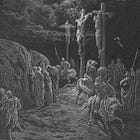
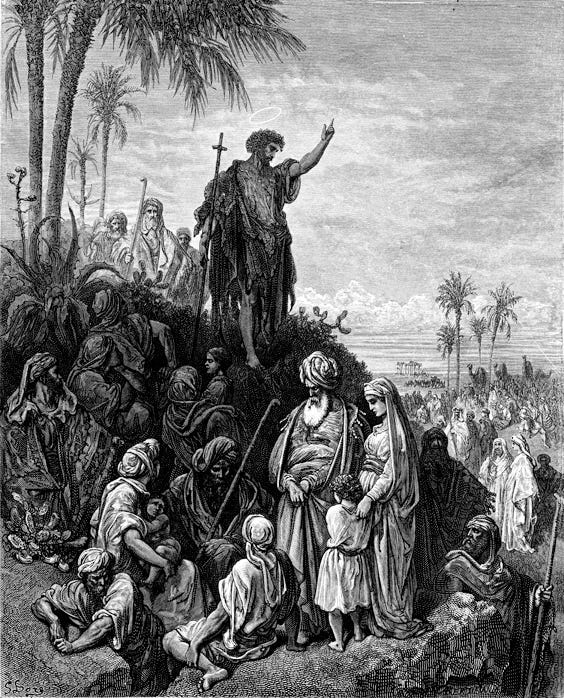
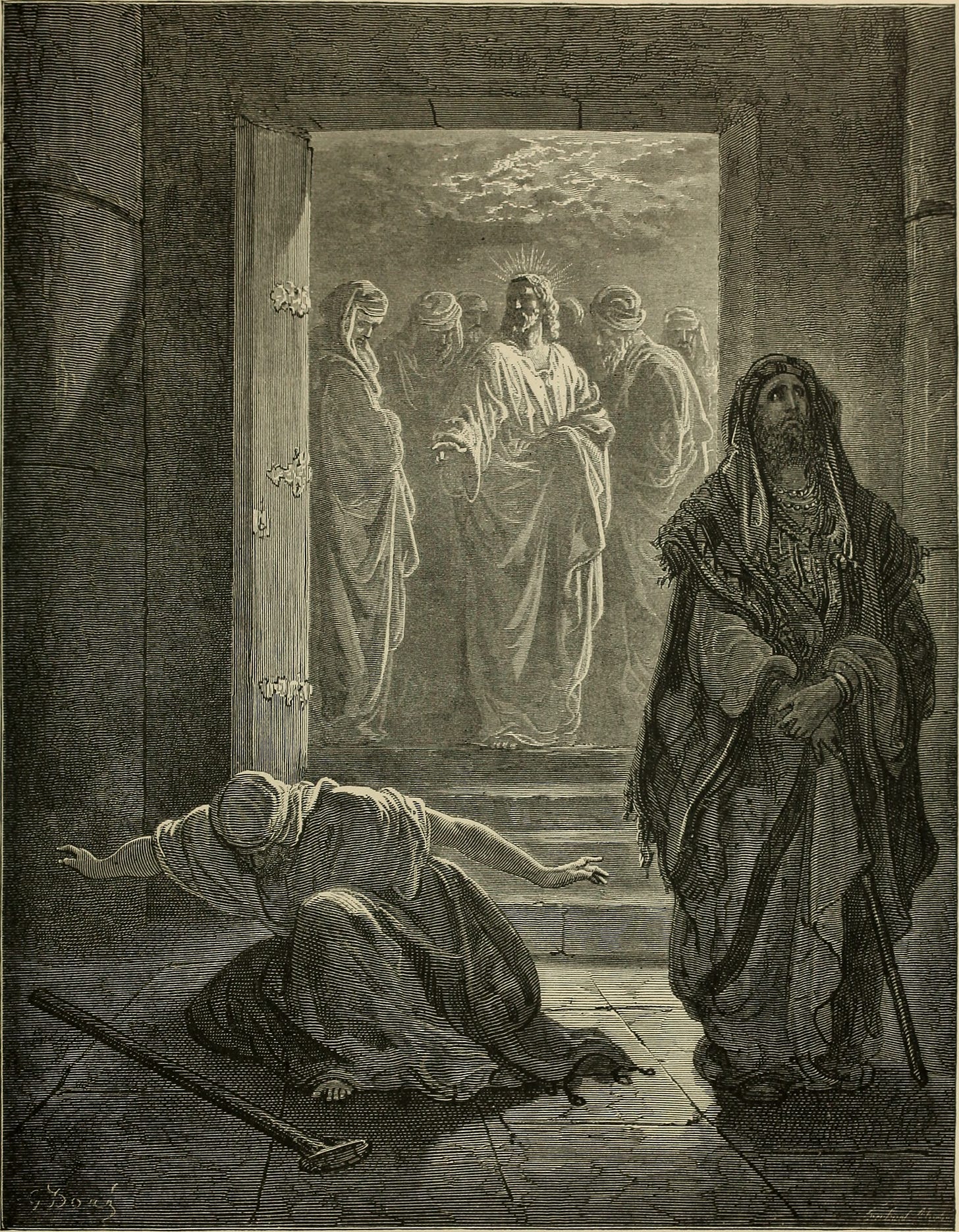
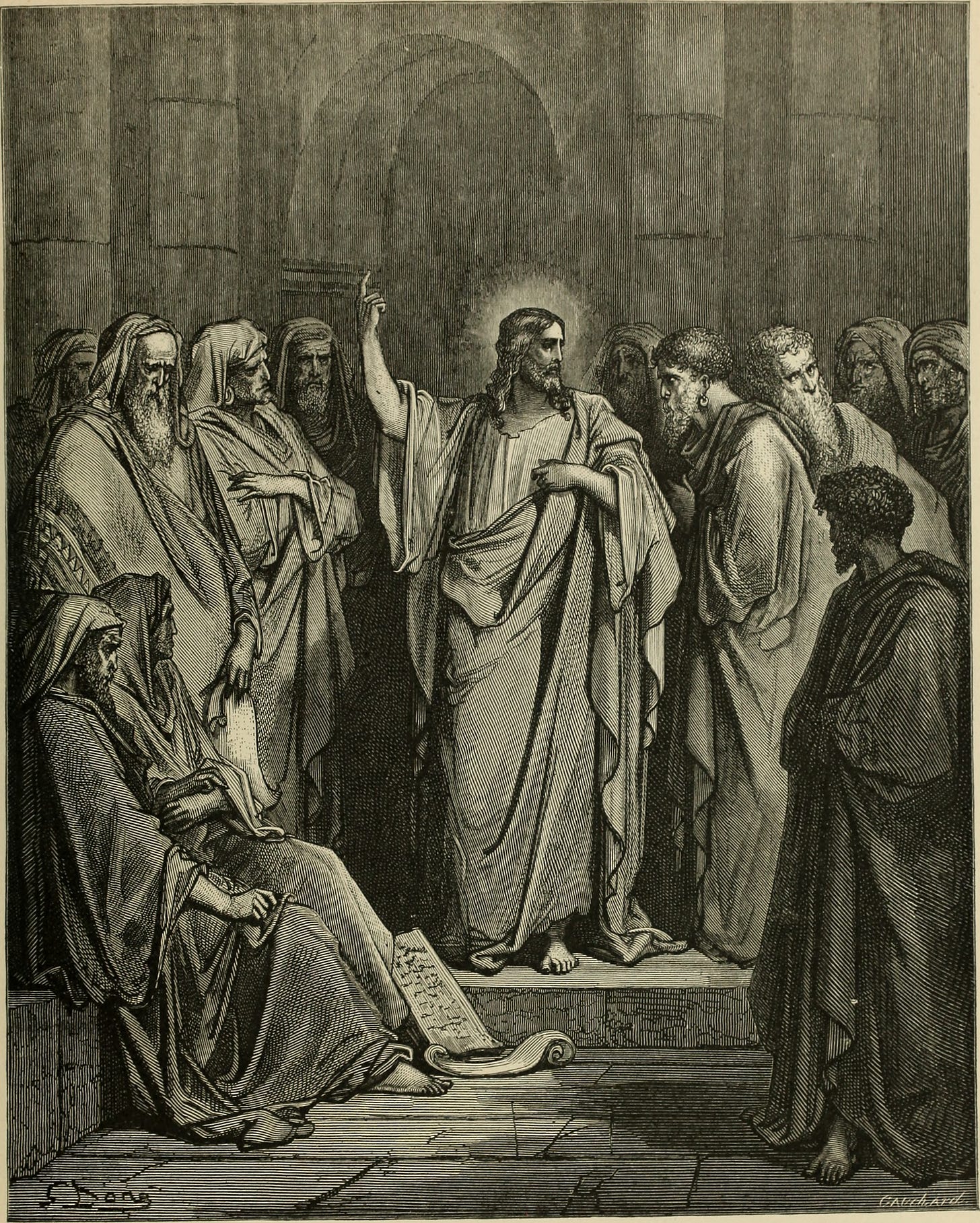
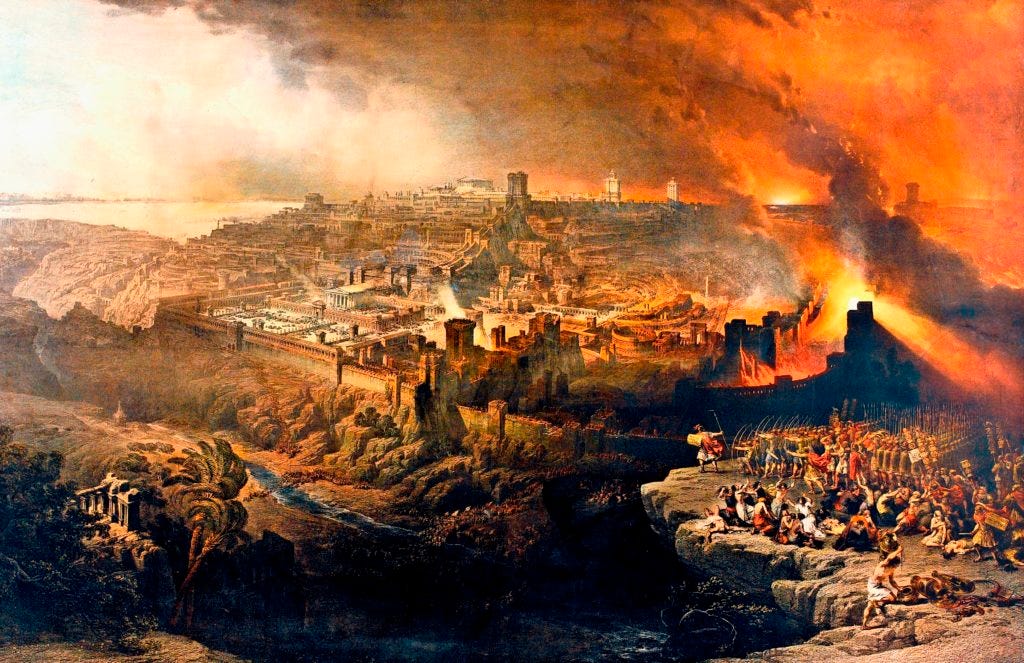
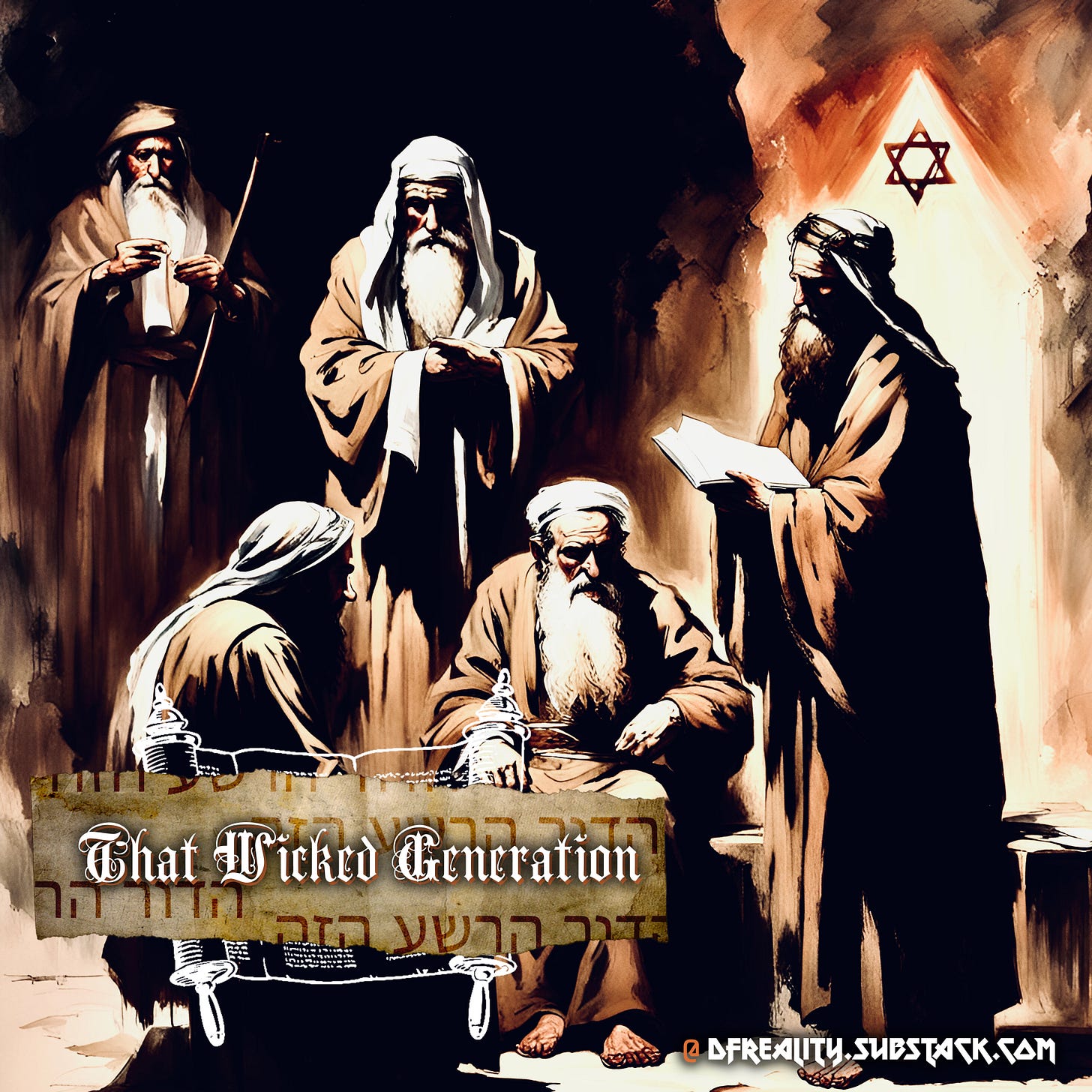
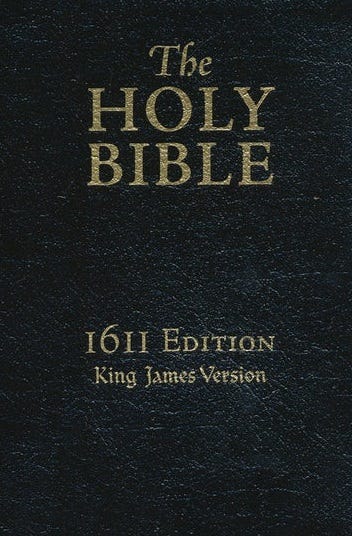
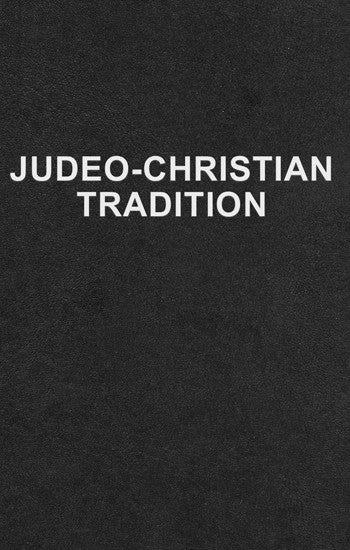

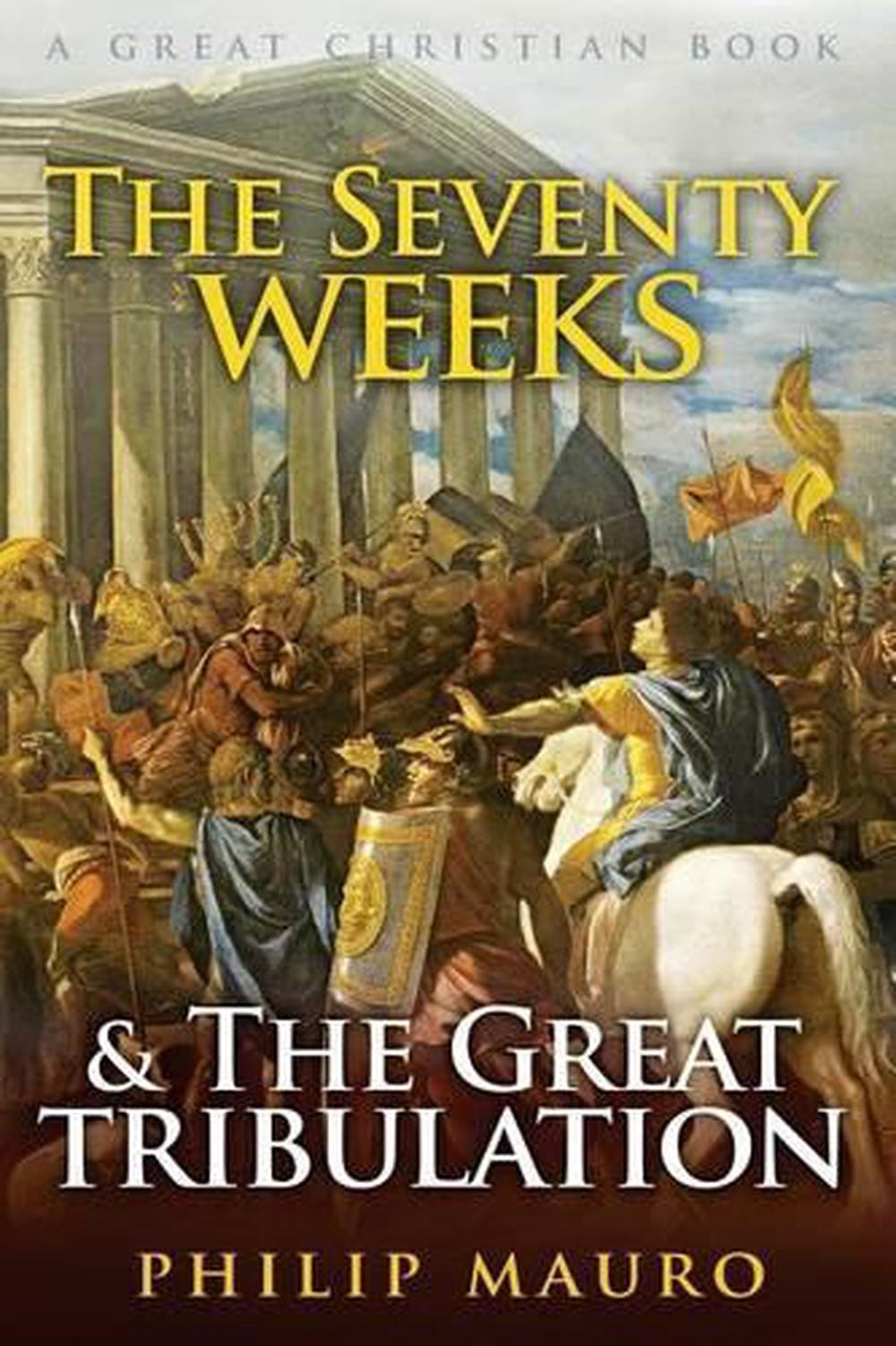

Make no mistake, from the beginning when Yeshua stood in the temple and read from Isaiah 61, the spirit of Yahweh is upon me, and, as He sat, proclaimed that He was the fulfillment of that promise, He was in the crosshairs of the Pharisees. Everything He said, everything He did, everywhere He went was attacked by them. Even after His crucifixion, their persecution continued and extended to those in the Way. Because He said that those who hated Him would hate His followers also. The insanity of it all is that that hatred continues literally to this day. Bought and paid for by Christian Zionists. Encouraged by American Christians.
Such an important and bedrock truth that will bear fruit for those willing to humble themselves and listen.